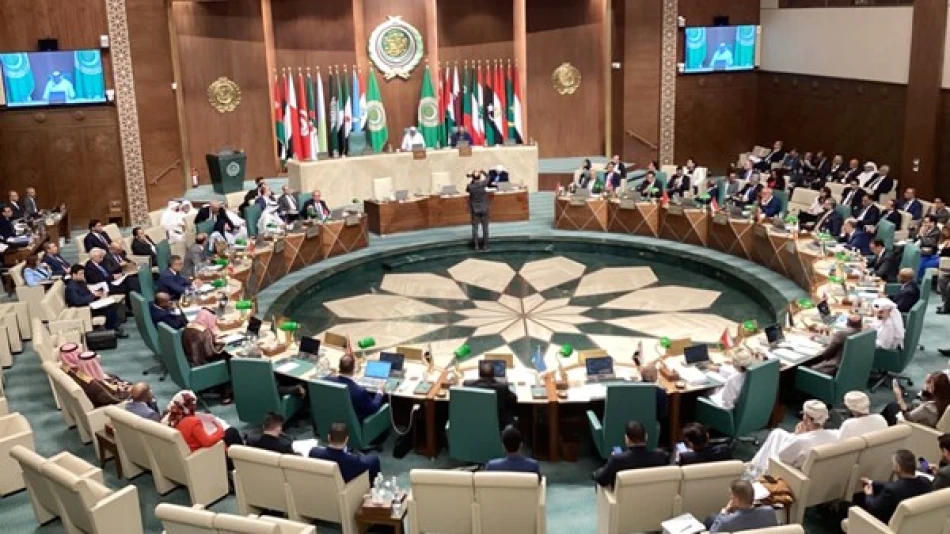
Urgent Arab Mobilization to Stop Israeli Aggression in Gaza
Arab League Convenes Under UAE Leadership as Palestinian Crisis Deepens Regional Tensions
The Arab League's 164th regular session, chaired by the United Arab Emirates in Cairo, has placed Palestinian statehood and Gaza's humanitarian crisis at the center of regional diplomatic efforts. As Arab foreign ministers prepare to meet Thursday, the session reflects growing frustration with international inaction and highlights the league's struggle to translate unified rhetoric into meaningful policy outcomes amid escalating Middle Eastern conflicts.
Palestine Remains the Compass for Arab Unity
Jordan's permanent representative to the Arab League, Ambassador Amjad Al-Adaileh, opened the session by reaffirming that "the Palestinian cause will remain a just cause for a struggling people and a compass for joint Arab action." His remarks underscore how the Palestinian issue continues to serve as both a unifying force and a litmus test for Arab League effectiveness.
Al-Adaileh's emphasis on Palestine as "the core of the Arab-Israeli conflict" signals that despite recent normalization agreements between Israel and several Arab states, the league's official position remains anchored to Palestinian liberation. This stance reflects the organization's need to balance member states' varying diplomatic approaches while maintaining institutional credibility.
Diplomatic Frustrations Mount Over U.S. Visa Denials
The session highlighted growing Arab frustration with American policy when Al-Adaileh expressed "regret over the U.S. State Department's decision not to grant entry visas to the Palestinian delegation" participating in the UN General Assembly's 80th session. This visa denial represents more than administrative procedure—it symbolizes the broader challenge Palestinian diplomacy faces in international forums.
The timing is particularly significant as the Arab League seeks UN General Assembly resolutions to halt what it terms Israeli aggression and address Gaza's humanitarian catastrophe. Such diplomatic obstacles undermine Arab League efforts to leverage international law and multilateral institutions for Palestinian statehood recognition.
Regional Crises Demand Coordinated Response
Beyond Palestine, the 164th session addresses a constellation of regional conflicts that test Arab League coherence. The agenda encompasses crises in Sudan, Yemen, Syria, Libya, Lebanon, and Somalia—a list that illustrates the organization's ambitious scope and limited enforcement mechanisms.
Economic Integration as Strategic Priority
The session's focus on Arab economic and social cooperation reflects recognition that political solidarity requires economic foundations. Plans to support the Palestinian economy and enhance inter-Arab economic integration suggest the league is pursuing practical cooperation where political consensus proves elusive.
This economic emphasis mirrors successful regional blocs like the Gulf Cooperation Council, where trade and investment ties have strengthened political coordination. However, the Arab League's broader membership and diverse economic systems present greater integration challenges.
UAE Leadership Signals Pragmatic Approach
The UAE's session chairmanship comes as the Emirates maintains diplomatic relations with Israel while supporting Palestinian causes—a balancing act that reflects evolving Arab approaches to regional diplomacy. This leadership role allows the UAE to demonstrate continued commitment to Arab League priorities while pursuing its own strategic interests.
The UAE's hosting suggests Arab League members recognize that effective regional diplomacy requires states with international influence and economic resources. This pragmatic approach may indicate the organization's evolution toward more flexible, results-oriented policies.
Testing International Law's Limits
The session's call for "political, legal, and diplomatic Arab action" to halt Israeli violations reflects the Arab League's strategy of leveraging international law and institutions. However, this approach faces inherent limitations when major powers provide diplomatic cover for contested actions.
The league's expectation of meaningful UN General Assembly resolutions demonstrates either diplomatic optimism or the absence of alternative strategies. Previous UN resolutions on Palestine have achieved symbolic victories while producing limited practical change—a pattern that may continue despite Arab diplomatic efforts.
Implications for Regional Stability
This Arab League session occurs amid unprecedented regional tensions, with conflicts spanning from Gaza to Sudan creating interconnected security challenges. The organization's ability to coordinate responses will significantly impact regional stability and its own institutional relevance.
Success in achieving Palestinian diplomatic recognition or meaningful Gaza reconstruction could reinvigorate Arab League credibility. Conversely, continued diplomatic failures may accelerate member states' pursuit of bilateral solutions outside league frameworks, further weakening collective Arab action in an increasingly multipolar Middle East.
Most Viewed News

 Layla Al Mansoori
Layla Al Mansoori






